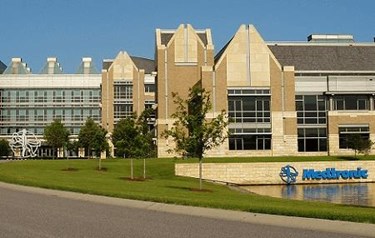Medtronic CEO: Growth Will Be Driven By Innovation, Globalization, Value-Based Care

Medtronic wants to generate $40 billion in free-cash-flow (FCF) by 2021, senior leadership said during a recent Investor Day event in New York City. The company’s strategies for future growth include therapy innovation, globalization, and a leadership position in value-based healthcare.
Recent developments at Medtronic— such as its acquisition of Covidien and subsequent relocation to Ireland — have put the company in a “unique position to drive consistent revenue growth,” chairman and CEO Omar Ishrak told investors, by allowing the company to capitalize on its “robust innovation pipeline, geographic reach, and innovative new healthcare business models.”
Of the $40 billion Medtronic expects to generate over the next five years, $10 billion will be used for bolt-on M&A and debt reduction, $10 billion will be reserved for financial flexibility, and the remaining $20 billion — or 50 percent of the FCF — will be returned to shareholders, according to Seeking Alpha, which outlined the company’s plans to achieve its long-term goals.
One area targeted as a driver for significant growth is Medtronic’s heart and vascular business. Though the market itself is only expected to grow by 4 percent, Medtronic believes it can achieve 9 percent growth by focusing on sub-segments that are growing faster than the overall markets. This includes a greater emphasis on services — such as diagnostics and care management.
Medtronic recently announced the launch of Beacon, a care management service for high-risk heart failure patients, to be delivered through the company’s newly created Medtronic Care Management Services (MCMS) business segment. A case study conducted with the technology demonstrated a 48 percent reduction in hospital readmission rates over 36 months and substantially better economic value.
Medtronic’s recent acquisition of Heartware for $1.1 billion is a move that Forbes says substantially expands the company’s existing heart failure portfolio. Costs of treating heart failure patients in the U.S. are on the rise and constitute the fastest growing expense on the U.S. healthcare system.
Seeking Alpha also reports that Medtronic plans to launch more new products between 2015 and 2020 than it has in the last 15 years, including six in its gastrointestinal (GI) business, nine in respiratory compromise, and four in lung cancer. Earlier this year, Medtronic was the first to launch a leadless pacemaker in the E.U. and U.S. markets, and the company has similar aims for the artificial pancreas, or fully closed-loop insulin delivery system, for which it has recently filed a premarket approval (PMA) application.
Key to furthering globalization, said Medtronic execs, was an innovative approach to emerging markets, which are expected to grow faster than more developed counterparts. Since many emerging markets involve local governments, Medtronic is looking for strategic partnerships and risk-sharing subscription models for their products, according to Seeking Alpha.
“We believe that Medtronic can play a leadership role in delivering meaningful solutions that can lead to better outcomes for patients, while improving overall healthcare system performance, as well as generating strong returns for our shareholders,” Ishrak said in a press release.
Image credit: Medtronic
